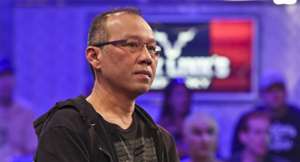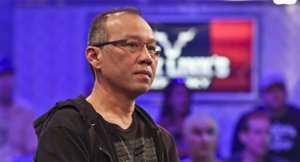Paul Phua Prosecution Gutted after Judge Suppresses Evidence
International gambling bigwig and Pacific Rim junket operator Wei Seng “Paul” Phua scored a major victory in his battle against the United States on Friday when a federal judge ruled in favor of his defense attorneys’ motion to suppress evidence obtained from Phua’s Caesars Palace guest villa in a prominent illegal sports betting case.
 US District Judge Andrew P. Gordon ruled on Friday that a complicated ruse undertaken by FBI and state-gaming agents, with the assistance of Caesars Palace employees, violated Phua’s Fourth Amendment rights. The ruse involved turning off all high-speed internet access to guest villas occupied by Phua and others at Caesars in Las Vegas last July, then posing as repair technicians and pretending to fix a service outage that they themselves had orchestrated.
US District Judge Andrew P. Gordon ruled on Friday that a complicated ruse undertaken by FBI and state-gaming agents, with the assistance of Caesars Palace employees, violated Phua’s Fourth Amendment rights. The ruse involved turning off all high-speed internet access to guest villas occupied by Phua and others at Caesars in Las Vegas last July, then posing as repair technicians and pretending to fix a service outage that they themselves had orchestrated.
The ruling confirms an earlier recommendation made by US Magistrate Judge Peggy Leen, who advised that the evidence seized from the villa occupied by Paul Phua be ruled inadmissible. Federal prosecutors had fought the recommendation, declaring that subjects of an investigation only had entitlement to life’s basic needs — food, water, heat, shelter, etc. — and not to such modern niceties as Internet access, and thus the Fourth Amendment defense raised by Phua’s attorneys didn’t apply.
Gordon wrote the following in his 22-page opinion:
Phua had a reasonable expectation of privacy in his hotel room. He expressed his desire to protect his privacy the day before the Government disrupted the DSL when [his] butler advised the agents, who were posing as TMS technicians delivering a laptop, that the occupants did not want anyone entering the villa’s interior. When the Government could not take advantage of the fortuitous request for a laptop, it disrupted the high-speed internet connection to Phua’s villa. The Government thus created the need for Phua to request a repair to a service previously available to him as part of his room rental. … As a guest at a hotel, Phua could not call anyone of his choosing to repair the DSL. He had to accept whoever presented themselves as authorized by the hotel to perform the repair. [T]he agents presented themselves as individuals authorized by Caesars to enter the villa to repair the problem the Government created, knowing that the problem could not be fixed inside the villa. The Government misled Phua into believing that to fix the problem (that unbeknownst to Phua the Government created), he had to surrender his privacy right that he was otherwise inclined to protect. Under the totality of these circumstances, Phua’s consent [as given to the FBI agents] was invalid.
Two separate searches of Phua’s villa, Villa 8882, were conducted, on July 4th and 5th, 2014, respectively. Gordon’s ruling makes inadmissible all evidence obtained by the FBI during those searches, though it does not completely close the door on the prosecution of the man who US authorities have alleged is a kingpin of the underground Asian online-gambling scene, and who is also — according to now-suspect source materials — a major figure of an Asian organized crime ring.
Since the ruling applies only to the searches of Phua’s Villa 8882, it leaves open the possibility that prosecutors could still use any evidence obtained from related searches in two other Caesars Palace guest villas, 8881 and 8888, that were occupied by friends and alleged associates of Phua. Phua’s privacy rights, as ruled by Judge Gordon, extend only to the villa that he and his son, Wei Kit (“Darren”) occupied, and not to the other two villas. Judge Gordon threw out some secondary motions regarding these matters, and advised Phua’s defense attorneys to file a new motion regarding the specific admissibility of any evidence obtained from those related searches.
At this point the US’s prosecution of Paul Phua appears crippled. While prosecutors succeeded in wrangling a misdemeanor plea from Phua’s son, Darren, they also had evidence that Darren had accepted and placed a bet on behalf of a specific, but unidentified in court papers, Nevada resident. That single fact likely forced the younger Phua to accept a plea deal.
Though Paul Phua may be the “kingpin” that prosecutors really targeted, a relative slap on the wrist is how the case may finally conclude. Phua and his defense attorneys are unlikely to cede ownership of Phua’s prize private jet, a modern engineering bauble variously valued at between $25 and $40 million. That jet has been under seizure order since last year, and is likely coveted by prosecutors as a means of garnering profit for the prosecutorial effort. Nonetheless, son Darren’s final agreement involved a fine of -only- $100,000.
Five of six other defendants in the case reached plea deals for larger amounts, also agreeing to leave the US under a de facto deportment deal. Charges against an eighth defendant in the case were dismissed earlier.




















COMMENTS